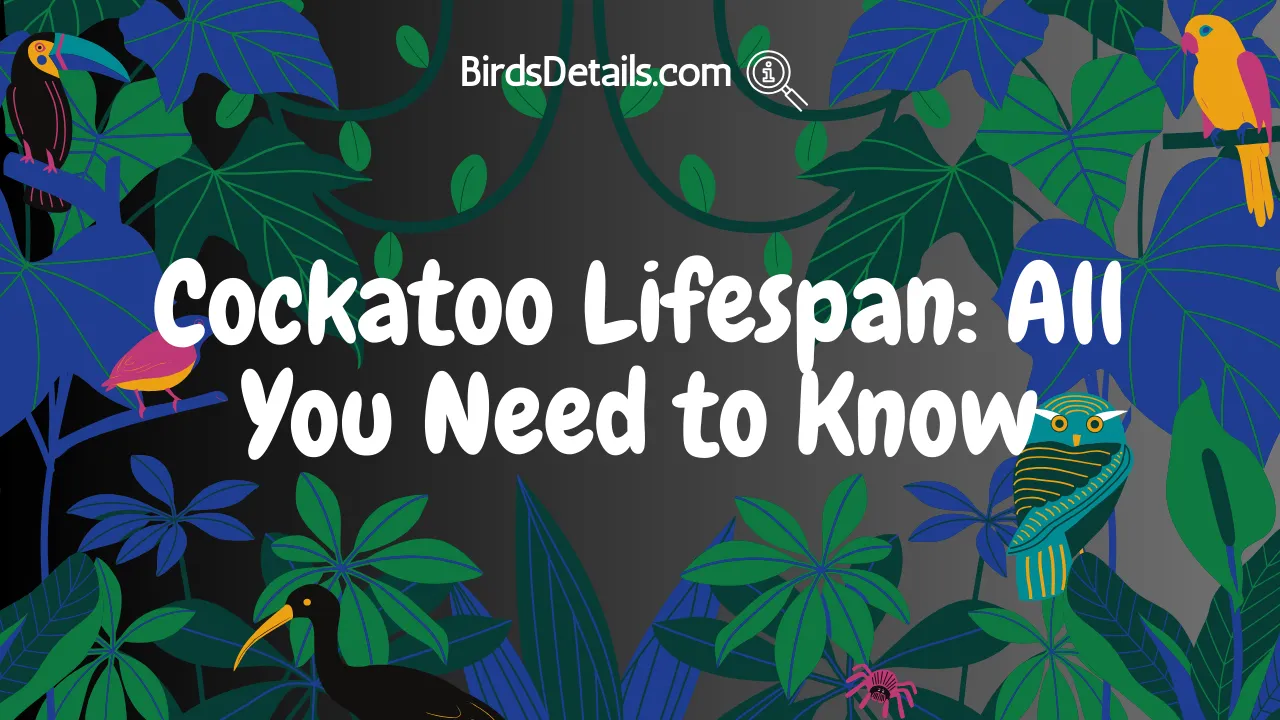Cockatoos and cockatiels are some of the most popular pet birds, known for their beautiful feathers and playful personalities. Crested parrots like the Tanimbar corella can also make great companions, but it’s important to understand that owning any of these birds is a lifetime commitment. Cockatoo and cockatiel lifespan varies depending on the species, but the average lifespan of a cockatoo ranges from 20 to 60 years in captivity.
Factors That Affect Cockatoo Lifespan
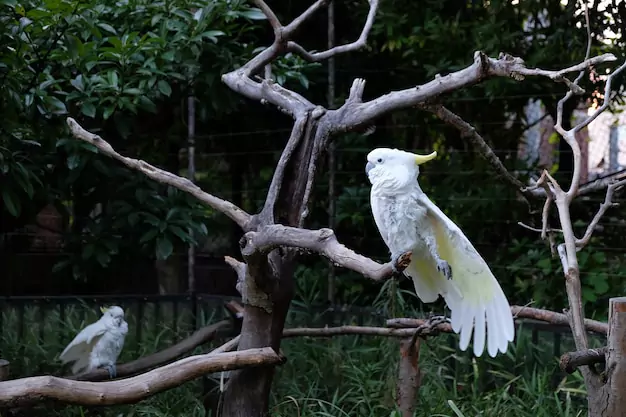
Several factors can affect the lifespan of a cockatoo and other crested parrots. Diet is a significant factor as they require a balanced diet that includes fruits, vegetables, nuts, and seeds. Exercise is also essential as cockatoos and cockatiels need regular physical activity to maintain good health. Genetics also play a role in determining their maximum age, as some species have longer lifespans than others. Starting at a young age with proper care can help ensure a healthy and long life for these birds.
Proper Care and Attention Can Help Increase the Lifespan
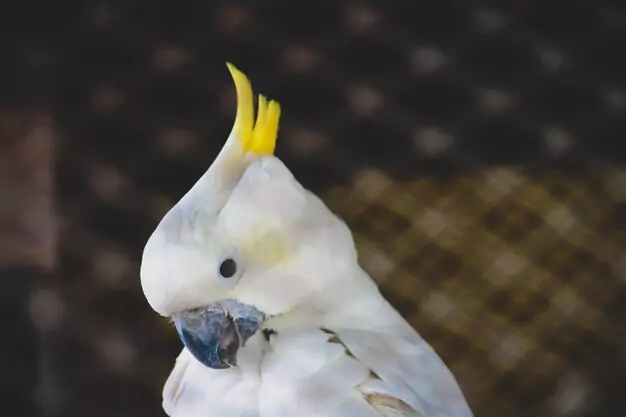
Providing proper care and attention can help increase the lifespan of a pet cockatoo, including the popular cockatiel and grey cockatoos. Owners should ensure that their parrot species has access to fresh water at all times and provide them with plenty of toys and activities to keep them mentally stimulated. Regular visits to an avian veterinarian are also crucial for maintaining good health, as it is for wild cockatoos.
What Is A Cockatoo Lifespan?
The lifespan of a cockatoo can vary depending on the species. The smallest species of cockatoos, such as the Goffin’s or Pygmy Cockatoo, typically live between 20-30 years in captivity. However, chicks in the pet trade may have a shorter lifespan due to inadequate care. Medium-sized species like the Galah or Rose-breasted Cockatoo can live up to 40-50 years in captivity, but neglect and mistreatment can lead to premature death. The larger species such as Moluccan or Umbrella Cockatoos can live up to 60 years or more with proper care, but those sold in the pet trade are at risk of early death if not given adequate attention and care.
| Characteristic | Details |
|---|---|
| Lifespan | 30 to 60 years |
| Size | 12 to 30 inches (30 to 76 cm) |
| Weight | 10 to 70 ounces (283 to 1984 g) |
| Diet | Seeds, fruits, vegetables |
| Habitat | Australia, New Guinea, and Southeast Asia |
| Conservation status | Least concern |
| Behavior | Social, playful, intelligent |
| Sounds | Loud squawks and whistles |
Lifespan Of A Cockatoo
A healthy diet and regular exercise are key components in ensuring your pet cockatoo, or any parrot species, lives a long and healthy life with good care. It’s important to note that these social birds require plenty of attention from their owners, especially when raising chicks. Neglecting these birds can lead to stress, depression, and other health issues that can shorten their lifespan.
Learn more about Cacatua: Facts, Images & Information Comprehensive Guide
Cockatoo Lifespan As Pet
If you’re considering getting a pet cockatoo, it’s essential to understand the commitment involved. These birds can live for several decades, with an expected lifespan of up to 70 years, so it’s crucial to be prepared for a long-term commitment. Cockatoos require daily interaction and mental stimulation to maintain good health and happiness throughout their life expectancies. Additionally, caring for chicks requires extra attention and dedication.
Average Lifespan of Cockatoos: How Long Do They Live?
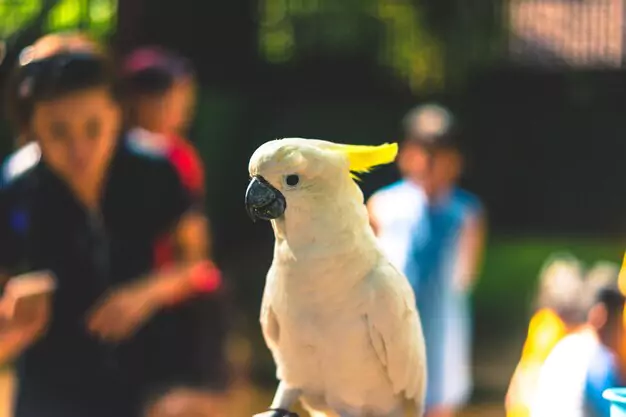
Cockatoos are one of the most popular pet birds worldwide. These intelligent and social birds are known for their striking appearance, playful personalities, and affectionate nature. However, if you’re considering adopting a cockatoo as a pet, it’s essential to understand their lifespan and common health issues. In this section, we’ll discuss the average lifespan of cockatoos and the factors that can affect their life expectancy and susceptibility to common health issues.
The Average Lifespan of Cockatoos
The average lifespan of cockatoos ranges from 40 to 60 years. However, some species can live up to 80 years in captivity with proper care. On the other hand, some species have a maximum lifespan of around 20 years in captivity. The life expectancy of a cockatoo largely depends on several factors such as diet, exercise, and overall care.
Diet
A well-balanced diet is crucial for maintaining a healthy and long life span for your pet cockatoo, as well as for wild cockatoos in their natural habitats. A healthy diet should consist mainly of high-quality pellets supplemented with fresh fruits and vegetables daily to ensure a maximum lifespan. Providing your bird with calcium supplements will ensure strong bones and prevent egg-binding in females.
Exercise
Cockatoos are active birds that require plenty of physical activity to maintain good health and ensure a long life. Providing them with ample space to fly within their enclosure or allowing supervised outdoor flight time will help keep them physically fit, ultimately increasing their life expectancies and maximum lifespan.
Factors Affecting the Lifespan of Cockatoos
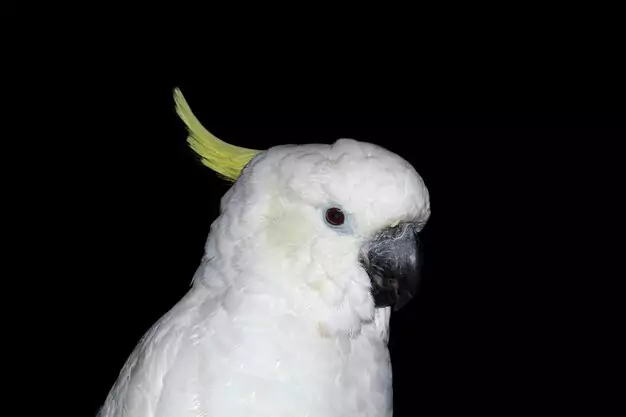
Environmental Factors such as Habitat and Climate
Cockatoos are social birds that require a suitable habitat to thrive. The natural habitat of cockatoos is typically in the rainforests of Australia, Indonesia, and Papua New Guinea. However, they have been introduced to other parts of the world, including the United States and Europe. The lifespan of cockatoos can be influenced by environmental factors such as their habitat and climate.
In their natural habitats, cockatoos live in large flocks and have access to a diverse range of food sources. However, when they are kept in captivity or introduced to new environments, their lifespan can be impacted. Cockatoos require a spacious environment where they can fly around freely and have access to fresh air and sunlight.
Young Age is a Crucial Factor in Determining the Lifespan of Cockatoos
The age at which a cockatoo is acquired can also impact its lifespan. Younger birds, including wild cockatoos, tend to adapt better to new environments than older ones. They are also more likely to develop strong bonds with their owners or caretakers if they are socialized early on in life.
Cockatoos that are acquired at an older age may have already developed behavioral issues that could affect their lifespan. These birds may be less adaptable to change and may struggle with developing strong bonds with humans or other birds.
The Time Spent as Chicks Can Also Affect the Lifespan of Cockatoos
The time spent as chicks can also play a role in determining the lifespan of cockatoos. Chicks that are raised by their parents tend to develop stronger immune systems than those raised by humans or hand-reared chicks.
Hand-rearing white cockatoo chicks, such as the galah cockatoo, require constant attention from humans who must provide them with warmth, food, and water. While this process can help create strong bonds between the chick and its caregiver, it can also lead to health problems later on in life. In addition, hand-rearing wild cockatoos can shorten their average cockatoo lifespan.
Predators
Cockatoos can face predators in their natural habitats, including snakes and birds of prey. These predators can impact the lifespan of cockatoos by preying on them or causing them to flee from their natural habitat.
In captivity, cockatoos with their long life expectancies may also face threats from other animals or household hazards such as toxic substances or sharp objects, which can significantly reduce their maximum life.
Diet and Nutrition for a Healthy Cockatoo Life
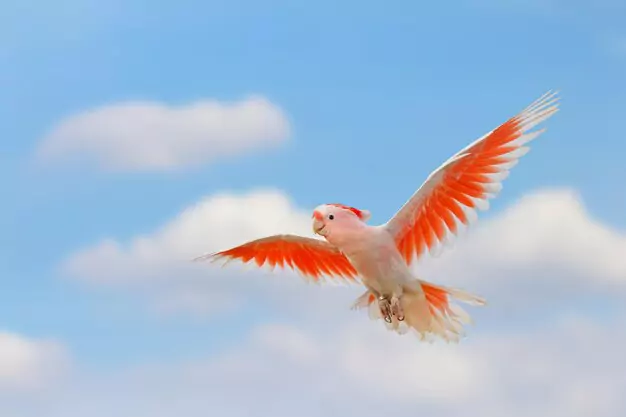
Proper Diet is Crucial for a Cockatoo’s Good Health
Cockatoos are intelligent, social, and active birds that require a proper diet to maintain good health and long life. A balanced diet for a cockatoo should include fresh fruits and vegetables, seeds, and pellets. Fresh fruits and vegetables provide essential vitamins and minerals that help boost the bird’s immune system, contributing to their long life. Seeds are an excellent source of protein and fat that help the bird maintain healthy skin, feathers, and muscles, which are crucial for their long life. Pellets contain all the necessary nutrients that a cockatoo needs in their daily diet to ensure a long life.
Feeding your wild cockatoos a balanced diet can also improve their behavior and mood. A study conducted by the University of Guelph found that wild birds fed with a varied diet were less likely to develop feather-picking behavior than those fed with only seeds or pellets.
It is important to avoid feeding your wild cockatoos foods that are high in fat, salt, or sugar as these can lead to obesity, liver disease, or other health problems. Also, make sure to provide your bird with fresh food and water every day.
A Balanced Diet for Your Cockatoo Should Include Fresh Fruits & Vegetables
Fresh fruits such as apples, bananas, grapes, oranges, and papayas are excellent sources of vitamins A and C which help boost the immune system of white cockatoos, galah cockatoos, and average cockatoos. Vegetables such as carrots, broccoli leaves/stems/flowers, kale leaves/stems/flowers, spinach leaves/stems/flowers, sweet potatoes/yams/squash/pumpkin/green beans/snap peas are rich in vitamins K and B6 which help support healthy blood circulation in these birds.
To ensure your cockatoo gets enough nutrients from fresh fruits and vegetables try offering them different types of produce each day. You can also mix fresh produce with pellets or seeds to encourage your bird to eat them.
Seeds Can Provide Essential Protein & Fat
Seeds are an excellent source of protein and fat that help the bird maintain healthy skin, feathers, and muscles. However, seeds should not be the only source of food in a cockatoo’s diet as they lack essential vitamins and minerals.
Offer your cockatoo different types of seeds such as sunflower seeds, safflower seeds, pumpkin seeds, and flaxseeds to provide them with a variety of nutrients. You can also mix seeds with pellets or fresh produce to encourage your bird to eat them.
Occasional Treats Can Benefit Your Cockatoo
Cockatoos can benefit from occasional treats such as eggs or small amounts of nuts. Eggs are an excellent source of protein while nuts are rich in healthy fats. However, it is important to offer these treats in moderation as they are high in calories.
Consult with Your Veterinarian or Avian Nutritionist
It is important to consult with a veterinarian or avian nutritionist to ensure your cockatoo’s diet meets their specific nutritional needs. They can recommend the best type and amount of food for your bird based on its age, weight, and health condition.
Common Health Problems in Cockatoos
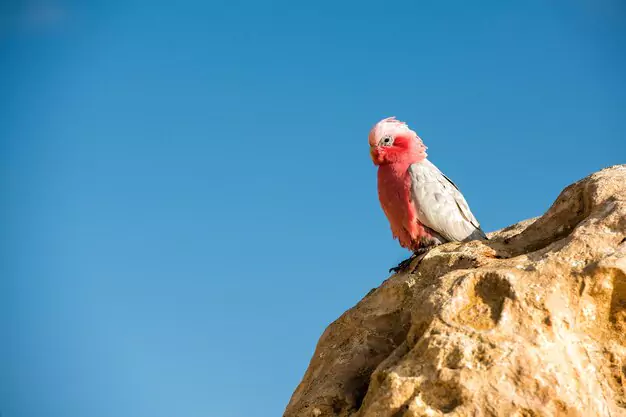
Feather plucking, beak malformation, and respiratory infections are some of the common health issues that cockatoos may face. These problems can be caused by various factors such as stress, nutritional deficiencies, or genetic factors. In this section, we will discuss these health issues in detail.
Feather Plucking
Feather plucking is a common cause of concern among cockatoo owners. This behavior involves the bird pulling out its feathers with its beak, leading to bald patches on its body. Feather plucking can be caused by stress, boredom, or medical conditions such as skin infections or allergies. If left untreated, feather plucking can lead to serious health problems such as skin damage and infections.
To prevent feather plucking in cockatoos, it is important to provide them with enough mental and physical stimulation through toys and activities. Ensuring a healthy diet and environment for the bird can also help reduce stress levels. If feather plucking persists despite these efforts, it is recommended to consult a veterinarian who specializes in avian medicine.
Beak Malformation
Beak malformation is another common health issue that affects cockatoos. This condition occurs when the beak grows abnormally due to nutritional deficiencies or genetic factors. Beaks that are too long or misshapen can make it difficult for the bird to eat properly and lead to further complications.
To prevent beak malformation in cockatoos, providing them with a balanced diet rich in essential vitamins and minerals is crucial. Regular visits to an avian veterinarian can also help detect any signs of abnormal growth early on and provide necessary treatment options.
Respiratory Infections
Cockatoos are also prone to respiratory infections which can cause coughing, sneezing, and difficulty breathing. These infections can occur due to exposure to dust or other irritants in their environment or from viruses spread by other birds. Respiratory infections can be serious and even life-threatening if left untreated.
To prevent respiratory infections in cockatoos, it is important to maintain a clean and well-ventilated environment for the bird. Regular check-ups with an avian veterinarian can also help detect any signs of respiratory distress early on and provide necessary treatment options.
Types of Cockatoos and Their Lifespan: Sulphur-crested, Baudin’s Black, Carnaby’s Black, Red-tailed Black, Umbrella, Galah, Goffin’s, Moluccan
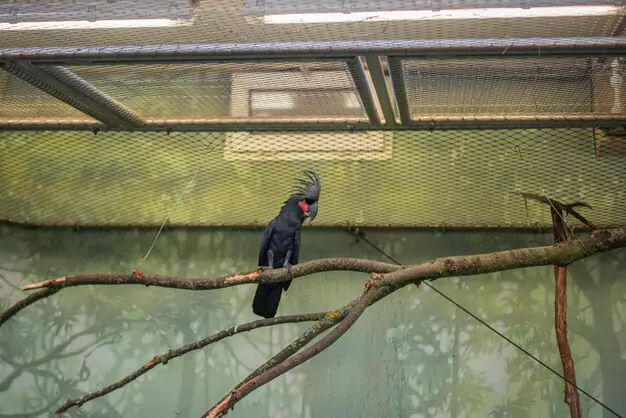
Sulfur-crested, Baudin’s Black, Carnaby’s Black, Red-tailed Black, Umbrella, Galah, Goffin’s, and Moluccan are the types of cockatoos with varying lifespans. The lifespan of different types of cockatoos varies depending on factors such as diet, habitat, and genetics.
Black Cockatoos
Black cockatoos are known for their distinctive black feathers and striking red tails. These birds include Baudin’s Black Cockatoo, Carnaby’s Black Cockatoo, and Red-tailed Black Cockatoo. They have a lifespan of up to 50 years in the wild. However, they face many threats in their natural habitats such as habitat destruction and illegal poaching. These factors can shorten their lifespan significantly.
Moluccan Cockatoos
Moluccan cockatoos have a lifespan of up to 60 years in captivity making them one of the longest-living species of cockatoos. They are also known for their beautiful pink plumage and playful personalities. Moluccans require a lot of attention from their owners due to their social nature and high intelligence levels. It is important to provide these birds with a healthy diet that includes fresh fruits and vegetables to ensure they live long healthy lives.
Galah Cockatoo
The Galah cockatoo or rose-breasted cockatoo has a lifespan of up to 40 years in captivity. These birds are popular pets due to their friendly personalities and ease of care compared to other species like the Moluccan or Umbrella Cockatoo. However, it is important not to neglect their dietary needs as poor nutrition can lead to health problems that may shorten their life span.
Oldest Living Cockatoo and Harmful Habits to Avoid
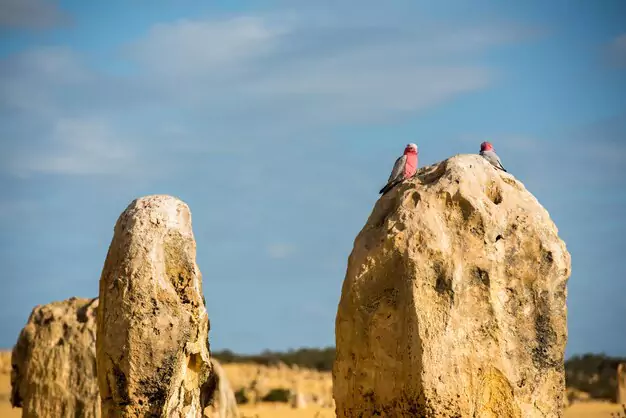
Oldest Living Cockatoo
Did you know that the oldest living cockatoo was Major Mitchell’s cockatoo named Cookie, who lived up to 83 years old? This impressive lifespan is not uncommon for these birds, as they can live for several decades in captivity with proper care. However, it’s important to note that not all species of cockatoos have the same lifespan. For example, some species like the palm cockatoo have a shorter lifespan than others.
Harmful Habits to Avoid
As pet owners, it’s our responsibility to ensure that our pets are healthy and happy. there are several harmful habits that we should avoid. Firstly, exposing them to harmful chemicals can be detrimental to their health. Cockatoos are sensitive creatures and can easily become sick from exposure to cleaning products or other chemicals.
Another habit to avoid is feeding them nuts in excess. While nuts can be a healthy snack for cockatoos, too much of a good thing can be harmful. Nuts are high in fat and can lead to obesity if fed in excess.
Finally, not providing your pet cockatoo with a mate or social interaction can lead to depression and other behavioral issues. These birds are highly social creatures and thrive on interaction with humans or other birds.
Palm Cockatoos
Palm cockatoos are known for their unique drumming behavior which they use as part of their courtship display when trying to attract a mate. They also have an impressive vocal range and can mimic sounds such as laughter or crying.
Major Mitchell’s Cockatoos
One of the most popular species of pet cockatoos is Major Mitchell’s cockatoo due to its striking appearance and playful personality. These birds have vibrant pink feathers on their head and chest which make them stand out from other cockatoo species. They are also known for their playful nature and love to interact with their owners.
Proven Ways to Help Your Cockatoo Live Longer
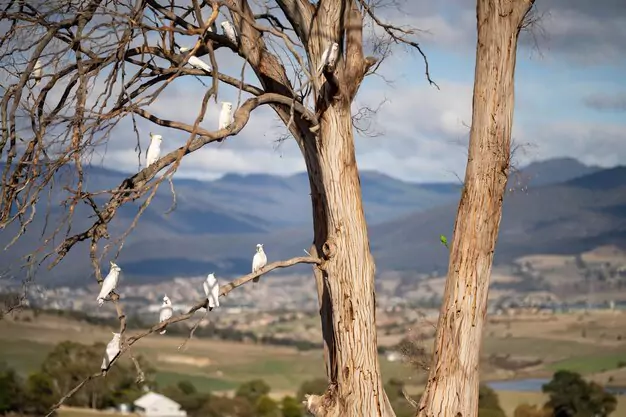
Regular veterinary check-ups and proper nutrition are essential to ensuring that your cockatoo lives a long and healthy life. These beautiful birds have a lifespan of up to 70 years, and with proper care, you can help your pet reach its full potential. Regular check-ups with an avian veterinarian can help catch any health issues early on, allowing for prompt treatment and prevention of further complications.
Proper nutrition is also crucial in extending the life of your cockatoo. A well-balanced diet should consist of fresh fruits and vegetables, high-quality pellets, and limited amounts of seeds. Avoid feeding your bird foods that are high in fat or sugar as they can lead to obesity and other health problems. Providing clean water daily is also important for maintaining good health.
It’s essential to avoid purchasing cockatoos from the pet trade as these birds are often taken from the wild illegally and subjected to stressful conditions during transport and captivity. These conditions can lead to physical and mental health problems that can shorten their lifespan significantly. Instead, consider adopting a rescue bird or purchasing one from a reputable breeder who raises their birds ethically.
Providing a stimulating environment with plenty of toys, perches, and social interaction is also critical in keeping your cockatoo healthy and happy. Cockatoos are highly intelligent creatures that require mental stimulation to thrive. Toys such as puzzles, bells, swings, ropes, ladders, and mirrors will keep them entertained while social interaction with family members will provide mental stimulation.
Educating yourself on common health issues in cockatoos such as respiratory infections or feather plucking can help you recognize any potential problems early on so that you can seek medical attention promptly. Early detection is key when it comes to treating illnesses or injuries effectively.
Wild Cockatoo Lifespan: How Long Do Cockatoos Live in the Wild?
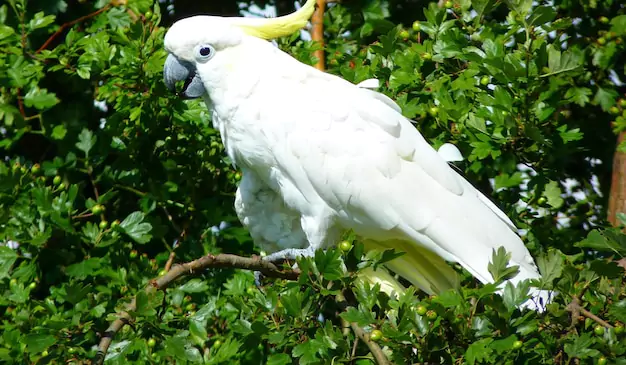
Shorter Lifespan for Wild Cockatoos
Cockatoos are known for their long lifespan, but this is not always the case for wild ones. Compared to captive cockatoos, wild cockatoos tend to have a shorter lifespan. The reason for this is that they face many challenges in the wild, including predators and harsh weather conditions. Habitat loss, hunting, and disease can also affect their lifespan.
Average Lifespan of Wild White Cockatoos
The average lifespan of wild white cockatoos is around 40 years. This is significantly shorter than the lifespan of captive white cockatoos which can live up to 80 years or more. In the wild, white cockatoos face many threats such as deforestation and poaching which can reduce their population and shorten their lifespans.
Factors Affecting Wild Cockatoo Lifespan
Various factors can affect the lifespan of wild cockatoos. One major factor is habitat loss due to deforestation and urbanization. When their natural habitats are destroyed or altered, it becomes difficult for them to find food and shelter which can lead to malnutrition and death.
Another factor affecting their lifespan is hunting. Many species of cockatoos are hunted for their feathers or as pets which reduces their population and puts them at risk of extinction. Disease outbreaks can also be a threat to their survival especially when they occur in large numbers.
Longevity of Some Species
While some species of wild cockatoos have an average lifespan of 40 years, others have been known to live up to 70 years in the wild. For example, the palm cockatoo has a longer lifespan compared to other species due to its ability to adapt well to different environments.
Understanding and Caring for Your Cockatoo’s Lifespan
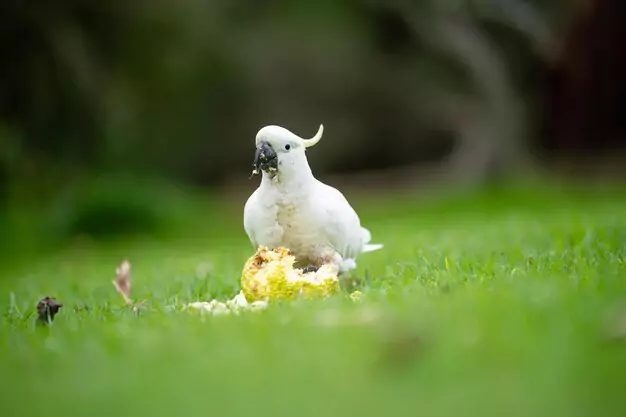
Balanced Diet for Longevity
To ensure your cockatoo lives a long and healthy life, it’s essential to provide them with a balanced diet. A healthy diet should include fresh fruits, vegetables, and nuts. Cockatoos need a variety of foods to meet their nutritional needs, including protein, carbohydrates, vitamins, and minerals.
Feeding your cockatoo a seed-based diet is not recommended as it lacks the necessary nutrients for optimal health. Instead, opt for high-quality pelleted food that contains all the essential nutrients your bird needs. You can supplement this with fresh fruits and vegetables like apples, bananas, carrots, broccoli, or spinach.
Exercise and Playtime
Regular exercise is crucial to maintaining your cockatoo’s physical health. In the wild, these birds fly long distances daily; therefore, they require ample space to move around in captivity. Provide them with plenty of toys to play with and rotate them often to keep them interested.
Cockatoos are intelligent birds that require mental stimulation through playtime activities such as puzzles or training sessions. Engaging in these activities helps prevent boredom and destructive behavior such as feather plucking.
Clean Living Environment
Keeping your cockatoo’s living environment clean is critical to preventing illnesses and injuries. Regularly clean their cage by removing any debris or uneaten food immediately. Disinfect the cage weekly using bird-safe products.
Be mindful of potential hazards in their environment such as toxic plants or open windows where they could fly out accidentally. Also, be aware of other pets in the household that may pose a threat to your bird’s safety.
Regular Check-Ups
Schedule regular check-ups with an avian veterinarian who has experience treating cockatoos. These visits will help detect any health issues early on before they become serious problems requiring more invasive treatment options.
During these check-ups, the vet will perform a physical examination on your bird checking its weight loss/gain trends over time, feathers, and beak. They may also recommend additional tests such as bloodwork or fecal exams to ensure your bird’s overall health.
Social Interaction
Cockatoos are social creatures that require daily interaction with their owners to thrive and live a long, happy life. These birds form strong bonds with their owners and enjoy spending time with them.
Make sure you spend quality time with your cockatoo each day by talking to them, playing games or just being in the same room together. This social interaction is essential for their mental well-being and helps prevent loneliness and depression.
How to Tell the Age of Your Cockatoo?
It can be challenging to determine the age of a cockatoo accurately. However, some clues can help you estimate their age. One way is by looking at their eyes; younger birds have dark eyes while older ones have lighter eyes.
Another way is by examining their feathers; younger birds will have smoother feathers while older ones may have frayed edges or missing feathers due to wear and tear over time. Lastly, you can ask the breeder or previous owner if they know the bird’s age.
Sulphur-crested Cockatoo, Cockatiel, and Maximum Lifespan of Cockatoos
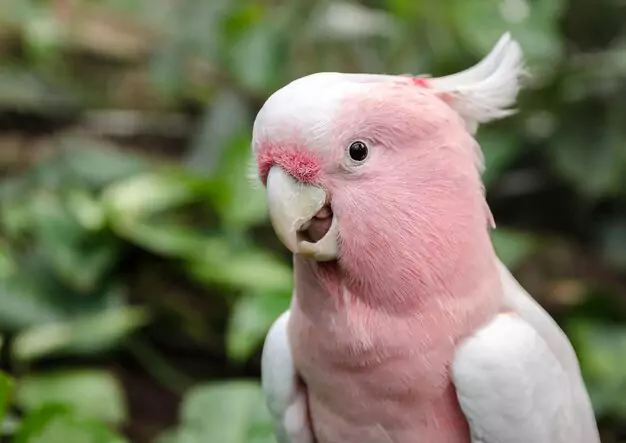
Sulphur-Crested Cockatoo: A Popular Pet Bird Species
The Sulphur-crested Cockatoo is a well-known and beloved species of parrot that is often kept as a pet bird. These crested parrots are characterized by their white feathers and distinctive yellow crest, which gives them a striking appearance. They have powerful beaks that they use to crack open nuts and seeds, as well as to chew on wood and other materials.
One of the reasons why the Sulphur-crested Cockatoo is so popular among bird enthusiasts and pet owners is because of its playful personality. These birds are highly intelligent and social creatures that love to interact with humans. They can be trained to perform tricks, mimic sounds, and even talk.
However, it’s important to note that owning a Sulphur-crested Cockatoo requires a significant amount of time, effort, and resources. These birds require daily attention and care to thrive in captivity. They need plenty of space to move around, as well as toys and other enrichment activities to keep them mentally stimulated.
Cockatiel: A Smaller Cockatoo Species with Maximum Lifespan of 20 Years
Another popular cockatoo species that is often kept as a pet bird is the Cockatiel. This smaller parrot has a maximum lifespan of about 20 years in captivity, making it an ideal choice for those who want a long-term companion but aren’t ready for the commitment required by larger species like the Moluccan Cockatoo.
Cockatiels are known for their friendly personalities and easy-going nature. They enjoy being handled by humans and can even learn how to whistle tunes or repeat simple words or phrases.
Like all parrot species, however, Cockatiels require proper care to live long healthy lives. This includes providing them with a balanced diet that consists of fresh fruits, vegetables, and high-quality pellets. They also need regular exercise and mental stimulation to prevent boredom and behavioral problems.
Moluccan Cockatoo: One of the Larger Species with Pink Feathers
The Moluccan Cockatoo is one of the larger species of cockatoos, with pink feathers that give it a unique appearance. These birds can live up to 80 years in captivity, making them a significant long-term commitment for pet owners.
While they are beautiful birds, Moluccan Cockatoos require specialized care due to their size and lifespan. They need plenty of space to move around and stretch their wings, as well as a varied diet that includes fresh fruits, vegetables, nuts, and seeds.
In addition to proper nutrition and exercise, Moluccan Cockatoos also require regular socialization and training to prevent behavioral issues like feather plucking or aggression toward humans.
Baudin’s Black Cockatoo, Carnaby’s Black Cockatoo, and Red-tailed Black Cockatoo Lifespan
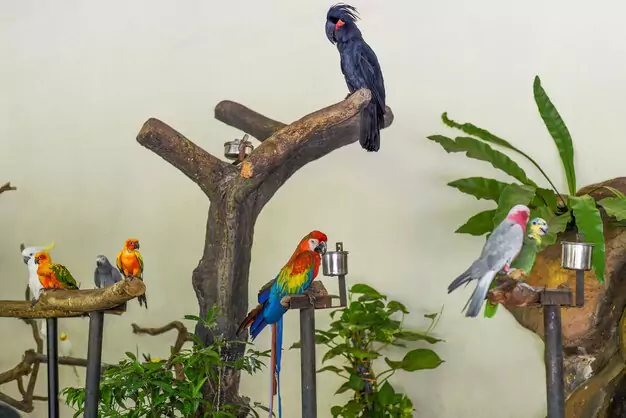
Baudin’s Black Cockatoo Lifespan: Around 40 Years in the Wild
Baudin’s Black Cockatoo is a species of black cockatoo native to southwestern Australia. These birds have a unique appearance with their white-tipped tail feathers and striking red patches on their cheeks. Baudin’s Black Cockatoos are known for their longevity, with an average lifespan of around 40 years in the wild.
However, despite their impressive lifespan, Baudin’s Black Cockatoos face numerous threats to their survival. Habitat loss due to deforestation and land development has led to a decline in their population size. These birds are often hunted for their feathers or captured as pets, further contributing to their declining numbers.
Conservation efforts are being made to protect Baudin’s Black Cockatoos and increase their lifespan. This includes habitat restoration projects and education campaigns aimed at raising awareness about the importance of preserving these birds’ natural habitats.
Carnaby’s Black Cockatoo Lifespan: Average of 25 Years in the Wild
Carnaby’s Black Cockatoo is another species of black cockatoo found in southwestern Australia. These birds have a distinctive white band across their forehead and bright red cheek patches. However, unlike Baudin’s Black Cockatoos, Carnaby’s have a shorter lifespan with an average of 25 years in the wild.
Habitat loss is also a significant threat facing Carnaby’s Black Cockatoos. These birds rely on old-growth forests for nesting sites and food sources. However, much of this habitat has been destroyed by human activity such as logging and agriculture.
Efforts are underway to protect Carnaby’s Black Cockatoos from extinction. This includes creating protected areas for these birds to nest and feed, as well as implementing measures to reduce habitat loss and fragmentation.
Red-tailed Black Cockatoo Lifespan: Up to 60 Years in the Wild
The Red-tailed Black Cockatoo is a species of black cockatoo found throughout Australia. These birds have a distinctive red tail and are known for their loud, raucous calls. Red-tailed Black Cockatoos have the longest lifespan of any black cockatoo species, with some individuals living up to 60 years in the wild.
Despite their long lifespan, Red-tailed Black Cockatoos face numerous threats to their survival. Habitat loss due to deforestation and land development has led to a decline in their population size. These birds are often hunted for their feathers or captured as pets.
Conservation efforts are being made to protect Red-tailed Black Cockatoos and increase their lifespan. This includes habitat restoration projects, creating protected areas for these birds to nest and feed, and education campaigns aimed at raising awareness about the importance of preserving these birds’ natural habitats.
Australian Cockatoo Lifespan, Proven Ways to Help Your Cockatoo Live Longer, and Can Cockatoos Live for Decades?
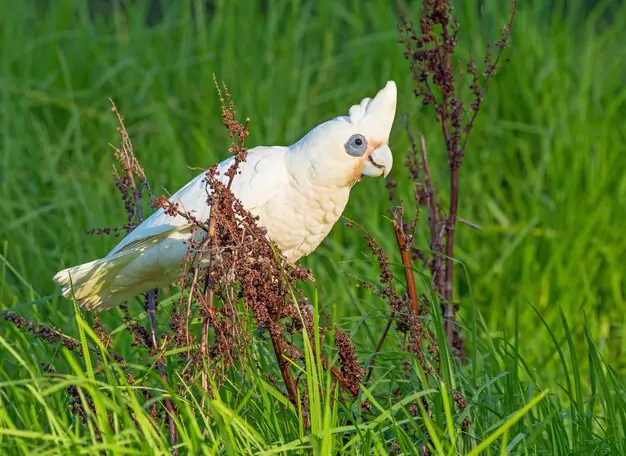
Australian Cockatoo Lifespan: How to Help Your Feathered Friend Live Longer
Balanced Diet for a Longer Life
One of the most important factors in extending your cockatoo’s lifespan is providing a balanced diet. Fresh fruits and vegetables should make up a significant portion of their diet, along with high-quality pellets and seeds. Avoid feeding your bird processed or sugary foods, as these can lead to health problems such as obesity and diabetes. It’s also essential to provide clean water at all times.
Regular Exercise and Mental Stimulation
Just like humans, cockatoos need regular exercise to stay healthy. Encourage your bird to fly around their cage or play area by providing plenty of toys and perches. Mental stimulation is also crucial for keeping your cockatoo happy and healthy. Consider teaching them new tricks or providing puzzle toys that require problem-solving skills.
Avoiding Toxins
Toxins such as cigarette smoke, non-stick cookware, and cleaning chemicals can be harmful to your cockatoo’s health. Make sure to keep these substances away from your bird’s living space, and avoid using them altogether if possible.
Proper Veterinary Care
Regular veterinary check-ups are essential for maintaining your cockatoo’s health. Annual exams can help catch any potential health problems early on, which can improve the chances of successful treatment. Vaccinations are also crucial for preventing diseases that could shorten your bird’s lifespan.
Can Cockatoos Live for Decades?
With proper care and attention, some species of cockatoos can live for several decades. For example, Major Mitchell’s cockatoo has been known to live up to 80 years in captivity! However, it’s important to note that different species have different lifespans, so it’s essential to research the specific needs of your bird.
Umbrella Cockatoo Lifespan and Characteristics
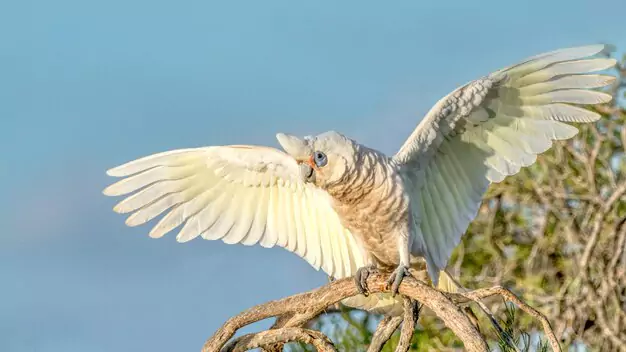
Distinctive, intelligent, and social – these are just a few of the words that come to mind when describing the umbrella cockatoo. As one of the most popular species in the cockatoo family, this bird has captured the hearts of many with its unique personality and stunning appearance. In this section, we’ll take a closer look at some of the key characteristics of this bird, including its lifespan, behavior, and care requirements.
Lifespan: How Long Do Umbrella Cockatoos Live?
One of the first things that potential owners should be aware of when considering an umbrella cockatoo as a pet is their lifespan. These birds are known for their longevity and can live for up to 60 years or more with proper care. However, it’s important to note that not all umbrella cockatoos will reach this age – some may only live for 30 or 40 years due to various factors such as genetics or health issues.
Behavior: What Makes Umbrella Cockatoos Unique?
Aside from their impressive lifespan, umbrella cockatoos are also known for their distinctive behavior. One of their most recognizable features is their crest – a plume of feathers on top of their head that they can raise or lower depending on their mood. When they’re feeling happy or excited, they may puff up their crest as a way to express themselves.
In addition to being expressive animals, umbrella cockatoos are also highly intelligent and social creatures. They thrive on interaction with humans and require plenty of mental stimulation to stay healthy and happy. This means that potential owners should be prepared to spend lots of time with their birds each day through activities like training sessions or simply spending time together.
Care Requirements: What Does It Take to Care for an Umbrella Cockatoo?
As with any pet, caring for an umbrella cockatoo requires commitment and dedication from its owner. These birds require a spacious cage with plenty of toys and perches to keep them entertained, as well as a healthy diet consisting of fresh fruits, vegetables, and high-quality pellets.
In addition to providing for their physical needs, owners must also be prepared to provide plenty of mental stimulation through training sessions and social interaction. This means spending time with the bird each day, engaging in activities like teaching them new tricks or simply talking to them.
Sulphur-crested Cockatoo Lifespan and Characteristics
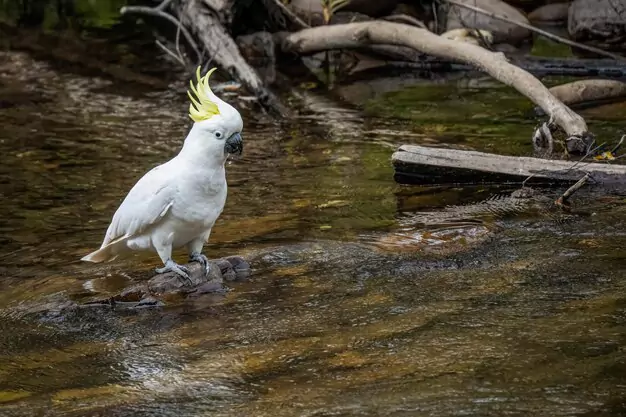
Striking Appearance and Playful Personalities
Sulphur-crested cockatoos are one of the most popular pet birds in the world. Their striking appearance, with their bright white feathers and yellow crest, makes them a favorite among bird enthusiasts. These birds are also known for their playful personalities, which can make them great companions for those who have the time and patience to care for them properly.
Long-Term Commitment
One thing to keep in mind before getting a sulfur-crested cockatoo as a pet is that they have a long lifespan. In captivity, these birds can live up to 80 years, making them a long-term commitment for owners. It’s important to consider this before bringing one into your home since it will require significant resources and attention over its lifetime.
Highly Intelligent
Sulfur-crested cockatoos are highly intelligent birds that require plenty of mental stimulation to prevent boredom and destructive behavior. This means providing regular opportunities for playtime, training exercises, and interaction with other humans or animals in the household. Failure to provide adequate mental stimulation can lead to behavioral problems such as feather plucking or excessive screaming.
Wild Habitat
In the wild, sulphur-crested cockatoos are found in Australia and New Guinea where they live in flocks of up to several hundred individuals. They feed on seeds, nuts, fruits, and insects found in their natural habitat. These birds are also known for their loud calls and vocalizations which can be heard from miles away.
Potential Health Issues
Like all pets, sulfur-crested cockatoos are susceptible to certain health issues that owners should be aware of. Some common health problems include feather plucking due to stress or boredom, respiratory infections caused by poor ventilation or exposure to cigarette smoke, and obesity from overfeeding or lack of exercise.
Goffin’s Cockatoo Lifespan and Characteristics
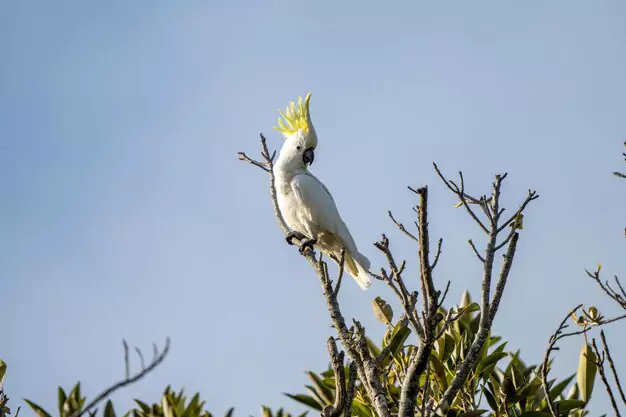
Size and Appearance
At an average length of 12 inches, Goffin’s Cockatoo is one of the smaller cockatoo species. They have a white plumage with a pinkish hue on their breast feathers. Their beaks are black, and they have dark brown eyes. These birds have a unique appearance that sets them apart from other parrots.
Habitat and Diet
Goffin’s Cockatoos are native to Indonesia and the surrounding islands, where they inhabit tropical rainforests and woodlands. In the wild, they primarily feed on seeds, fruits, and insects. However, in captivity, their diet can be supplemented with pellets, vegetables, and fruits.
Intelligence and Behavior
These birds are intelligent creatures that require mental stimulation to thrive. Goffin’s Cockatoos can learn tricks quickly and can even mimic human speech with practice. They are social animals that enjoy spending time with their owners but also require alone time to play with toys or preen themselves.
Lifespan
Goffin’s Cockatoos have a lifespan of around 25-40 years in captivity. Proper care is essential to ensure these birds live long, healthy lives. Owners should provide them with a balanced diet rich in nutrients as well as plenty of opportunities for exercise.
Caring for Goffin’s Cockatoos
When caring for Goffin’s Cockatoos, it is important to provide them with adequate space to move around freely. A cage should be large enough for them to spread their wings fully without touching the sides or top of the enclosure. Owners should also provide plenty of toys for entertainment purposes.
Conclusion: Understanding and Caring for Your Cockatoo’s Lifespan
Understanding and Caring for Your Cockatoo’s Lifespan
Now that you have learned about the different factors affecting the lifespan of cockatoos, it is important to understand how to care for them properly. As a responsible pet owner, you have to ensure that your feathered friend lives a long and healthy life.
One of the most crucial aspects of caring for your cockatoo is providing a balanced and nutritious diet. Make sure to provide fresh fruits, vegetables, grains, and lean protein sources such as chicken or fish. Avoid feeding your bird processed foods or those high in sugar and salt.
Regular exercise is also essential for maintaining your bird’s health. Allow them plenty of time outside their cage to fly around and play. Provide toys and activities that stimulate their minds and keep them active.
It is also important to monitor your bird’s health regularly. Regular check-ups with an avian veterinarian can help catch any potential health issues early on. Keep an eye out for signs of illness such as lethargy, loss of appetite, or changes in behavior.
Finally, avoid harmful habits that can negatively impact your bird’s lifespan such as smoking around them or exposing them to toxic fumes from cleaning products.
